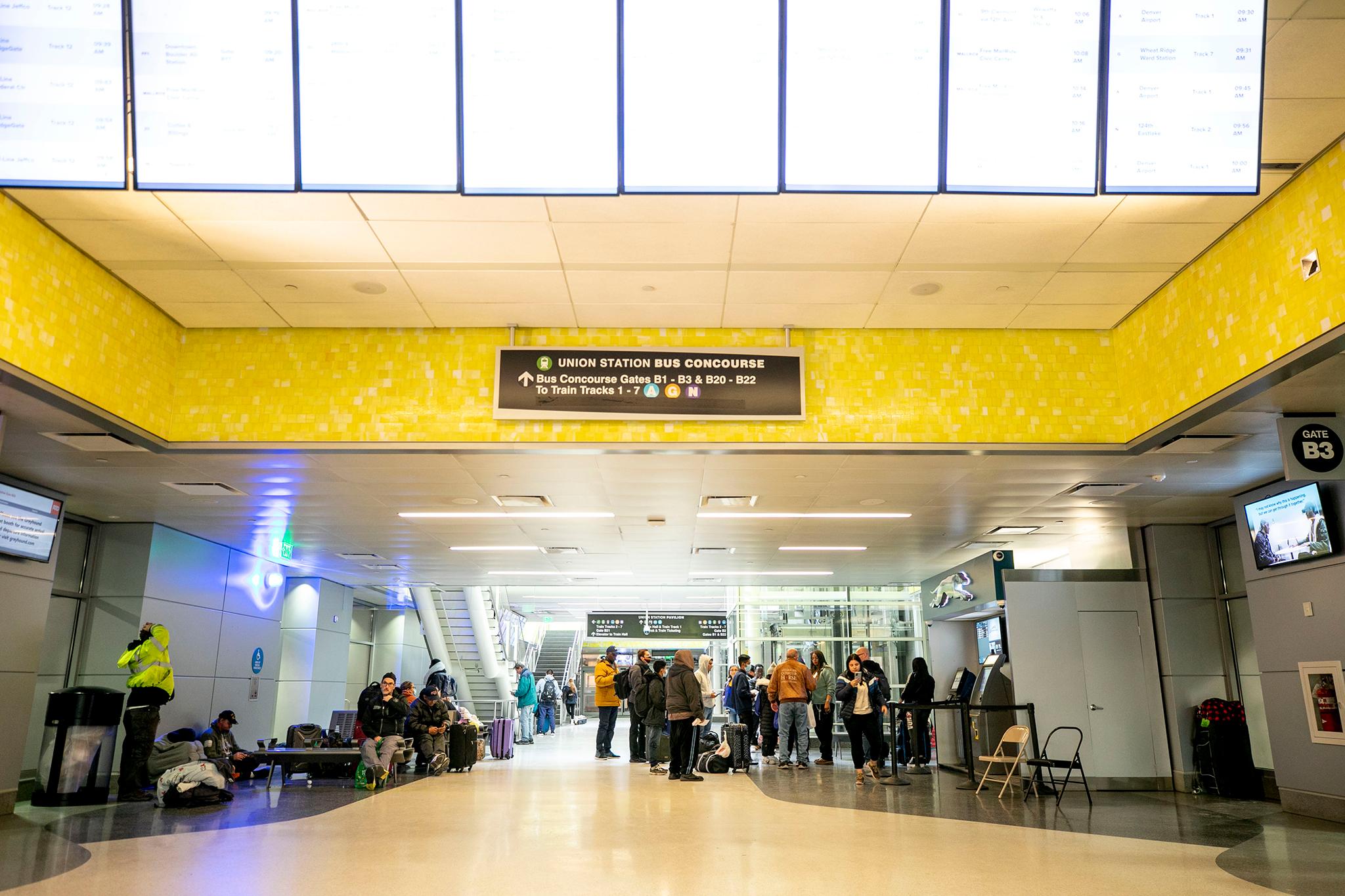By Zachary Shell for Denverite
Greyhound isn’t leaving Union Station after all.
After months of uncertainty, the Regional Transportation District confirmed last week that the bus company has signed an 18-month extension of its lease, reversing plans to vacate the station’s underground concourse at the end of August.
The deal, which took effect Sept. 1, will keep Greyhound buses running from Union Station through February 2027.
Greyhound’s continued presence at the downtown station had been a point of tension since September 2024, when RTD announced it would not renew the five-year agreement, signed in 2020, that gave the company access to the concourse.
The decision followed years of complaints about safety and service disruptions.
Among the issues cited by RTD officials were abandoned buses, passengers stranded without information, and other recurring problems that they said strained the station’s operations.
Union Station has been Greyhound’s home since the company closed its longtime terminal on 19th Street in early 2021.
At the time, RTD billed Greyhound’s presence as a way to integrate intercity buses into the heart of Denver’s transit network, putting passengers within steps of light rail and commuter rail, Amtrak, and local bus service.
A move away from Union Station would likely have pushed riders to a less central, less visible spot in the city.
Greyhound agreed to address complaints.
Concerns over the impact of Greyhound’s potential exit sparked months of back-and-forth between RTD and Greyhound, culminating in November when the agency signaled it would consider a temporary extension of the lease beyond August 2025.
The deal would depend on the company addressing safety and service issues while searching for a permanent site.
Last week, RTD and Greyhound officially signed that extension, offering a temporary resolution to the standoff. RTD spokesperson Stuart Summers said the agreement was possible because of Greyhound’s “good faith efforts to address and mitigate the agency’s previous concerns.”
As part of the agreement, Greyhound must:
- Improve communication with RTD.
- Follow the agency’s customer code of conduct.
- Attend monthly meetings with RTD staff.
- Pay penalties if buses are left unattended, parked in the wrong places, or damage station facilities.
But the practical takeaway is that buses will continue departing from Union Station’s underground concourse through at least the end of next year.
In a statement, Greyhound said the company is pleased to continue normal operations, calling intercity bus travel “a vital part of Denver’s transportation network” that connects people to jobs, schools, healthcare, and family.
Greyhound and its competitors are growing.
The extension arrives as intercity bus travel climbs nationwide.
In 2024, Greyhound and other providers served an estimated 50 million passengers, compared to 28.6 million on Amtrak.
Meanwhile, researchers at DePaul University’s Chaddick Institute project bus ridership will have grown by an additional 4 percent by the end of 2025, outpacing both air and car travel. It’s a trend some analysts have called the industry’s “Cinderella moment.”
For Denver riders, the extension matters less as an industry trend than as a day-to-day reality; a move away from Union Station, after all, would likely mean longer transfers, higher costs, and fewer options.
But while transit advocates have long argued that keeping Greyhound downtown is essential for low-income riders without cars, there’s still the long-term question of where Denver’s intercity bus hub will be. Civic Center Station and other sites have been floated, though no definitive plan has been announced.
By early 2027, city leaders and Greyhound will have to decide on a permanent home for intercity buses.
Until then, passengers will keep boarding in the heart of downtown—unsure if Union Station will remain Denver’s hub when the lease expires once again.












